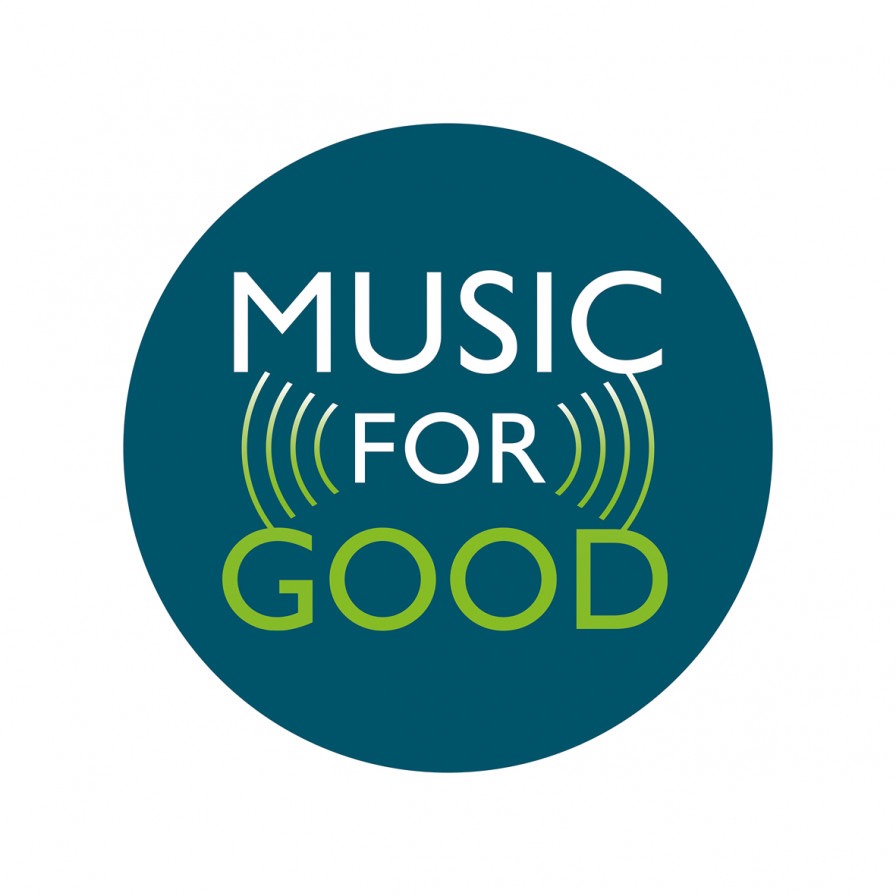Trauma-Informed Delivery, Social Prescribing Partnerships, and Singing for Health

Our third decade of Inclusive Music Making: Trauma-Informed Delivery, Social Prescribing Partnerships, and Championing Singing for Health
Music for Good (formally CYMAZ Music) reached its 20th Birthday this year. That’s 20 years of inclusive music delivery in the south-west. To celebrate, we’ve launched our new name and vision, alongside a range of new programme initiatives including our new Trauma-Informed Music project funded through Youth Music’s Fund B programme.
But as we start this brand new term, eager to get delivering face to face in settings again, we are starkly reminded of the impact Covid-19 has had on so many children and young people’s mental health. The impact is particularly acute for those who were already struggling with their well-being.
We believe Music for Well-being can become an important part of recovery plans, post Covid-19 but we must recognise that settings are currently managing increasing levels of anxiety and mental health issues.
By working together in close partnership for 24 months, we aim to co-curate a musical offering which is joined up and truly embedded within our partner settings. These are a PRU/APA, a GP surgery, a Special Needs school, and an Adolescent Residential Mental Health unit.
Our partners have contributed to the development of this programme in that they have recognised the importance and potential impact of embedding a music practitioner for a day a week. We all recognise that young people value the relationships, the flexibility, and the continuity that this will bring and we are excited to discover how an embedded music practitioner can work more closely with setting staff - becoming an important part of the wrap-around care that young people receive.
A Trauma-Informed and Music and Wellbeing Approach
Our programme will work with CYP with complex needs and high Adverse Childhood Experiences (ACEs) scores. Evidence and feedback from our previous work has shown that trauma-informed approaches to music activities can have a marked impact on well-being for those with high ACE scores. Helping young people to cope with feelings of isolation, anxiety and challenging behaviour. A Trauma-Informed approach can support them to reflect on their emotions, build their self-esteem and support them to positively engage with others. All this in turn, helps them to cope with stressful situations and leads to better learning outcomes. You can read this blog which details the ‘science’ behind our music and wellbeing approach.
Social Prescribing
The work within the GP surgery is an exciting extension of our current relationship with St Austell Healthcare's Social Prescribing programme for adults. No current provision for young people exists under the programme and so we are looking forward to piloting this new strand of work.
Many problems that people face cannot be fixed by doctors and medicine alone. Social Prescribing programmes embrace an holistic view, recognising that community assets and social action are part of the solution to preventing ill health. Through Social Prescribing Programmes, GP based ‘link workers’ connect people to practical and emotional community support.
Social Prescribing and Community-based support is part of the 10 year NHS commitment to ‘Personalised Care’. Here is a great resource on the Culture, Health and Wellbeing Alliance website if you want to know more.
Singing for Health Training Strand
Singing has always been an important part of our programme delivery and our Director, Emily Foulkes is an experienced Singing for Health practitioner and Senior Lecturer/Singing for Health lead.
There is a growing body of evidence that singing can promote personal, social and functional health. (Clift & Morrison, 2011; Lynch & O’Donaghue, 2017; Baker et al, 2012; Daykin et al, 2018; Fancourt et al, 2020). Indeed, this evidence base is now so strong that singing for health has hit mainstream media! Check out this recent BBC Radio 4 Just One Thing Programme
Music for Good recognises that training and resources are needed so that the benefits of singing can be married with trauma and mental health informed approaches.
Therefore, the final strand of our Youth Music funded project will be to widen the reach and improve the training offer for singing practitioners working with children and young people. We are very pleased to be working in partnership with Sing Up and the Foundation to deliver this national offer. So watch this space!
This training will complement our National Singing For Health Network which we launched earlier this year. The network aims to bridge the gap between practice and research and provide a supportive ‘home’ for the UKs growing Singing for Health community. It costs just £20 to join as a member and we are already delivering a range of webinars and research informed training so do take a look! If you are singing leader interested in social prescribing work you can download this free resource from the network to get you started.
Evaluation and Measuring Impact – Call for collaboration
Music for Good is a learning organisation and so the role evaluation will have within these programme strands is really important. We are particularly interested in piloting new ways of collecting data which are appropriate for the settings and the young people we work with. We are interested to see how we might take evaluation methodologies from both the music education and community sector and the health sector and find robust evaluation tools which may be useful to both.
If you have any experience of evaluation tools that have worked in similar settings please let us know – we would love to connect and learn from your approach.
Consultation and Tailored Training
We are well aware that Music Hubs and other community music organisations up and down the country are currently re-developing their Equality, Diversity and Inclusion strategies. We are passionate about inclusivity and have 20 years experience of working with hard to reach young people. Please do get in touch if you would like to discuss any consultation and training needs with us.
Contact us through our website or email our Director Emily Foulkes - emily@musicforgood.uk
